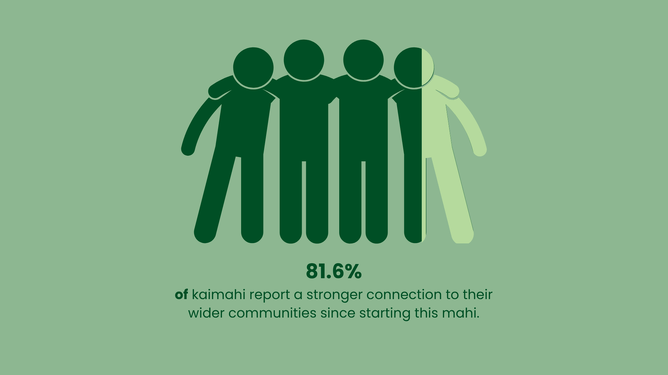Ka ora te whenua, ka ora te tangata | When the land is well, we are well
Ka ora te whenua, ka ora te tangata | When the land is well, we are well
Kaimai Mamaku Restoration Project kaimahi experience significant positive impacts through their conservation mahi. Overall, kaimahi | workers feel fitter and stronger than before they started, experience better mental health and feel more connected to whenua, whānau, tūpuna and iwi. They strongly believe their mahi is making a positive difference and they’re confident talking about it.
The social and cultural impacts of conservation mahi is a compelling co-benefit of investing in nature.
Te Whare Tapa Wha was used as the basis of the Kaimai Mamaku Restoration Project Social Impact Survey. Developed by leading Māori health advocate Sir Mason Durie in 1984, Te Whare Tapa Wha describes health and wellbeing as a wharenui with four walls. When all these things are in balance, we thrive.
100% of KMRP kaimahi identify as Māori and key findings have shown:
68.3% of Kaimai Mamaku Restoration Project kaimahi say their mental health has improved since starting this mahi
81.6% feel a stronger connection to their wider communities since starting this mahi
95.5% are confident this mahi is making a positive difference on te taiao and/or their communities.


